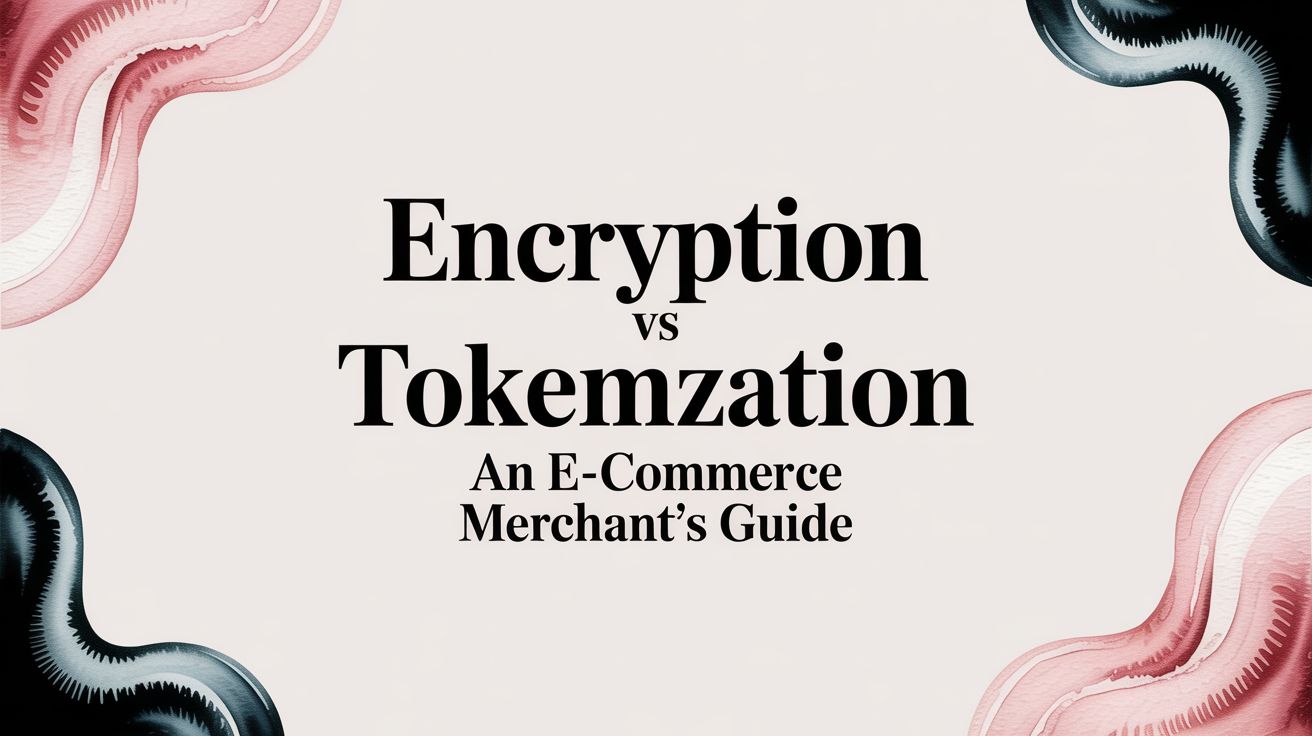
According to a report by Juniper Research, businesses incurred approximately $20 billion in losses due to chargeback fraud in the year 2021 alone.
In fact, chargebacks frequently lead to significant expenses for entities within the payment network.
'
As outlined in the Chargeback Triangle Report published by Verifi, this issue results in charges surpassing $31 billion annually on a global scale for both merchants and issuers.
Notably, the distribution of these costs is uneven, with approximately two-thirds burdening merchants (approximately $19 billion) and only one-third being borne by card issuers (around $12 billion).
The effects of chargebacks extend beyond mere financial loss for small businesses.
They possess the potential to disrupt operational workflows, strain customer relationships, and deplete valuable time and resources.
The accelerated expansion of online transactions, shifts in consumer behaviors, and the emergence of sophisticated fraud techniques collectively contribute to the escalating incidence of chargebacks faced by small businesses.
Regardless, it is important for business owners to be aware of these trends and challenges to properly administer chargebacks and eliminate the adverse effects of chargeback fraud on their business.
We will provide you with a comprehensive understanding of chargebacks, their various consequences, real-life examples, compelling statistics, actionable measures to protect yourself, and the ultimate defense strategy against chargeback fraud.
The Consequences of Chargeback Fraud
Usually, the consequences of chargeback fraud on businesses are two-fold.
Financial Consequences
In cases of chargeback fraud, merchants are at risk of significant losses, while cardholders stand to gain. Usually, banks and card networks prefer swift resolutions of these issues with minimal complications.
The implication of this fraud extends beyond revenue losses alone to include chargeback fees, which can amount to as much as $50 per incident or more.
When a chargeback occurs, the funds initially received from a customer's purchase are reversed, directly impacting the business's revenue. This can pose a considerable challenge for small businesses with limited financial resources and narrow profit margins.
Chargebacks involve the reversal of funds, and the affected merchant(s) often incur additional fees imposed by payment processors or banks, which further increases the impact on a small business's profitability.
Exceeding a certain threshold of chargebacks may subject the merchant to further fees and penalties, potentially leading to the loss of their account with payment processors and rendering them unable to accept payments.
Operational Consequences
Chargebacks present operational challenges that can impact small businesses' overall efficiency and customer relations.
Addressing chargebacks demands substantial administrative effort, involving tasks such as evidence gathering, paperwork completion, and communication with payment processors and issuing banks.
This administrative burden consumes time and redirects valuable resources away from core business activities.
Beyond the direct loss of revenue, chargebacks can strain the relationship between a small business and its customers.
Disputes stemming from chargebacks may result in negative reviews, diminished customer trust, and the potential loss of future business opportunities.
Banks and card companies often impose heightened restrictions on merchants experiencing high chargeback rates.
Excessive chargebacks can further tarnish the merchant's brand image, negatively impacting customer loyalty and future sales.
Firms may also be inclined to blacklist merchants with a high number of chargebacks, adversely affecting the profits of these merchants.
According to a report by BRC, UK, 90 per cent of surveyed firms reported being impacted by chargeback abuse, with only a minority feeling adequately equipped to manage it.
Effective chargeback management becomes crucial for small businesses to navigate these challenges while maintaining positive customer interactions.
Real-Life Chargeback Fraud Examples
Here are a series of recent scenarios faced by merchants to underscore the importance of establishing effective processes to minimize the risk of chargebacks.
Let’s look at these cases:
> Case 1
An e-commerce business selling children's toys online encountered a chargeback when a client's card data, compromised before the transaction, led to a disputed $200 charge.
Despite the merchant presenting proof of a matching data entry, the client insisted the transaction was unauthorized, and the bank ruled in the client's favor.
> Case 2
In another case, a car rental company in Georgia, United States, faced a chargeback after billing a client $300 for damages to a rented car.
Despite having the client's credit card information on file and billing in accordance with the signed rental agreement, the client contested the charge, leading to the merchant covering the repair costs.
> Case 3
A small restaurant business in Missouri faced an issue when a client living in Texas disputed a $90 charge for food. The client had called in an order, and the merchant, wanting to secure the sale, manually keyed in the credit card number.
However, two months later, the client filed a chargeback, and the merchant, lacking evidence of the legitimate transaction, lost both the $90 and the cost of the food.
Examining real-life scenarios helps you see the extent of damage caused to these merchants and helps you contemplate the actions you should take to combat similar cases for your business.
Chargeback Fraud Statistics
These chargeback fraud statistics paint a vivid picture of businesses' multifaceted challenges with financial transactions.
From financial implications to recurring patterns, understanding these statistics is pivotal for developing comprehensive strategies to mitigate the devastating effects of chargeback fraud.
Incidence Rate: On average, chargebacks affect 6 in 1,000 transactions, highlighting the pervasiveness of this fraudulent activity.
Merchants specializing in the sale of tangible products typically experience a chargeback ratio of 0.6% or lower.
Conversely, those engaged in providing services, time-based offerings, or digital goods often experience higher chargeback rates exceeding 0.6%.
The commonly acknowledged threshold for chargeback rates is 1%, signifying that one chargeback occurs for every 100 successful transactions.
This percentage is generally considered the upper limit allowed for merchant accounts.
Specific sectors encounter elevated chargeback rates due to their unique business characteristics.
For instance, the travel industry, encompassing airlines, hotels, and travel agencies, frequently contend with higher chargeback rates, often reaching 0.89%.
Factors contributing to this increase include cancellations, travel plan disruptions, or dissatisfaction with accommodation arrangements.
Financial Toll: The price of chargebacks exacts a toll on service providers, accounting for 0.47% of their total income.
This seemingly modest percentage masks the substantial financial strain chargebacks impose on businesses, emphasizing the importance of implementing robust preventive measures for your business.
Global Economic Impact: The global economic toll of chargeback fraud is staggering, with sellers facing losses exceeding $20 billion in 2021.
As businesses grapple with these substantial financial setbacks, there is a pressing need for collaborative efforts to curb this pervasive fraud.
Projected Future Costs: The projection for chargeback costs is ominous, such that it was expected to soar to $117.47 billion by 2023 alone.
This data underscores the urgency for businesses to proactively address vulnerabilities, implement preventive measures, and stay ahead of evolving fraudulent tactics.
Friendly Fraud Dominance: A concerning revelation is that 86% of chargebacks are likely cases of 'friendly fraud.'
This deceitful activity, camouflaged within seemingly legitimate transactions, poses a significant challenge for businesses striving to distinguish genuine claims from orchestrated fraud.
Surge in Friendly Fraud: Friendly fraud has witnessed a consistent surge, increasing by 41% every two years.
This trend emphasizes the need for businesses to refine their fraud detection mechanisms and employ technologies that can accurately identify and thwart deceptive practices.
E-commerce Vulnerability: E-commerce businesses are particularly vulnerable, with 75% experiencing an uptick in fraud attempts in 2021.
This sector-specific challenge necessitates tailored strategies to safeguard online transactions and protect businesses from the escalating threat of chargeback fraud.
Strategies to Protect Against Chargeback Fraud
Businesses must employ specific measures to thwart chargeback fraud effectively. This necessitates following a well-defined plan to enhance overall business operations.
Here are vital steps that aid businesses in minimizing disputes and combating chargeback fraud:
1. Dedicated Support Team
A responsive and dedicated customer support team demonstrates your commitment to resolving issues promptly.
Accessibility to customer support reduces the likelihood of customers resorting to chargebacks when facing challenges such as unexpected charges or receiving incorrect items.
2. Surveillance of Unusual Activity
Deploy real-time monitoring tools to scrutinize transactions for irregular patterns or high-risk behavior.
Automated systems have the capacity to flag transactions deviating from typical customer conduct, enabling swift investigative action.
3. Ensuring Secure Payment Processing
Maintain the security of payment processing systems, ensuring compliance with the Payment Card Industry Data Security Standard (PCI DSS).
Regular system updates are essential to safeguard against vulnerabilities and potential breaches.
4. Integration of 3D Secure Technology
Enhance online transaction security with 3D Secure, requiring customers to input a password or a one-time code.
This technology authenticates the cardholder during the transaction, effectively reducing the likelihood of unauthorized purchases.
5. Adoption of Address Verification Services (AVS)
Implement AVS to cross-verify the provided address with the card company's records.
AVS helps identify address disparities, which serves as a potential indicator of fraudulent transactions.
6. Deployment of Advanced Verification Systems
Invest in robust authentication mechanisms to validate customer identities.
Multi-factor authentication, CAPTCHA tests, and biometric authentication effectively ensure that only authorized users can complete transactions.
7. Utilization of Fraud Prevention Services
Harness fraud prevention services offered by payment processors and third-party providers.
These services leverage advanced algorithms and machine learning to identify potentially fraudulent transactions, which adds an additional layer of protection for your business transactions.
8. Up-to-Date Online Inventory
Maintain diligence in keeping online inventory updated. Allowing customers to complete transactions for out-of-stock products increases the risk of chargebacks.
Regularly updating online inventory prevents such situations and encourages customers to seek refunds directly.
9. Accurate and Comprehensive Documentation
Accurate documentation is crucial in preventing chargeback fraud. Merchants should keep detailed records of proof of delivery, tracking information, and customer communication.
Access to precise documentation enables merchants to respond promptly to chargeback requests and dispute them more effectively.
10. Analysis of Chargeback Data
Continuously analyze chargeback data to identify patterns and reasons behind chargebacks.
This proactive approach helps address issues such as slow delivery times and enables the implementation of thresholds for monitoring unusual chargeback activity.
11. Implement Fraud Prevention Tools
Leveraging automated fraud prevention tools equipped with AI and machine-learning algorithms is crucial for analyzing user behavior, transaction data, and detecting suspicious activity to prevent fraudulent transactions before they result in chargebacks.
Additionally, employing AI-powered identity proofing tools like Know Your Customer (KYC) verification adds an extra layer of protection against fraudulent account usage, a primary contributor to card-not-present transaction chargebacks.
These tools aid in establishing user trustworthiness, gathering key user information, and assessing the risk associated with each customer, allowing for proactive identification and mitigation of potential chargeback-inducing activities.
ChargePay - Your Recovery Partner After Chargeback Fraud
ChargePay is the ultimate defense against the looming threat of chargeback fraud for businesses.
Fortified with state-of-the-art AI technology and exhaustive data analysis, ChargePay sets a new standard for precision and effectiveness in countering the pervasive issue of chargeback fraud.
Let’s discuss how ChargePay achieve all that for businesses.
With seamless integration across numerous platforms, ChargePay stands out as a versatile solution, specializing in adeptly managing chargebacks within 11 key industry sectors, with a particular emphasis on eCommerce chargeback management.
Upon signing up with ChargePay.ai, businesses are ushered into an era of dispute resolution that not only supports but empowers them to thrive in the face of chargeback challenges.
ChargePay approach involves automated dispute retrieval, streamlining the entire dispute management process by seamlessly integrating with over 30 payment processing providers, including industry giants like PayPal, Shopify Payment, and Stripe.
This comprehensive integration extends to popular e-commerce platforms such as Shopify, Wix, Bigcommerce, and Amazon FBA, ensuring that ChargePay.ai has real-time access to all necessary information for an exceptional winning rate.
ChargePay WinResponse tool is a powerful ally that securely gathers evidence from multiple data sources, dynamically adapting based on the store type, dispute history, and evolving algorithms.
The human-proofed excellence of ChargePay is exemplified by dedicated dispute experts who perform a meticulous double-check before dispatching dispute responses to banks.
This fusion of AI-driven solutions and human expertise enhances the effectiveness of chargeback resolutions.
ChargePay takes a proactive stance on security to provide an extra layer of protection against fraud and future disputes.
With ChargePay, victory against chargeback fraud is guaranteed for your business.
.webp)






.svg)







.svg)
.svg)
.svg)